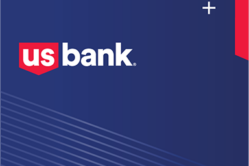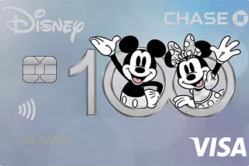Credit card debt can be a budget killer, especially with many credit card companies raising interest rates. It’s not uncommon for credit cards to come with interest rates around 15% or higher. It can take 10 years to pay off your credit card debt if you only pay the minimum on each card. Even if you pay extra on your cards it can take years.
The best way to get rid of credit card debt is a combination of lowering the amount of interest you pay and paying extra on your credit cards. Below are some pros and cons to using a Home Equity Line of Credit, or HELOC, to consolidate credit card debt, and some alternative options.
Pros and Cons of Using a HELOC to Consolidate Debt
HELOCs are a flexible line of credit. They are always open, which means you have access to the equity in your home at any given time. Their flexibility makes them a great option for debt consolidation, home improvements or an emergency source of funds. The interest rates are also usually affordable, often coming around 5% or so.
While there are many benefits and uses for HELOCs, there are also associated cons to using a HELOC. The biggest downfall is that you are tapping home equity; if you default on the loan, the bank can take your home. Because you are laying your house on the line, you need to make sure you have the cash flow to cover the loan.
Best Debt Consolidation Options
The most important things to look for when doing your own debt consolidation plan is the interest rate, whether or not the debt is secured and flexibility. Your credit cards are unsecured loans, meaning the banks can’t repossess anything if you default on your loan. A mortgage or HELOC would be a secured loan, as would a car loan, meaning the lender could repossess the item if you default.
Zero percent balance transfer credit cards. Zero percent balance transfers allow you to transfer your credit card debt to a 0% interest credit card. There is usually a 3-5% fee to transfer your credit card debt, but you lock in 0% interest rates for up to 12 months. This is an incredible deal if you can pay off your credit card debt in that amount of time, and will probably save you the most amount of money in the long run. You can save a lot of money with 0% balance transfers.
Personal line of credit or peer to peer loan. You may be able to get a personal line of credit through your bank, or you may be able to get a peer to peer loan through a company such as Lending Club or Prosper, which both allow regular folks to loan people money for things like paying down credit cards at a lower interest rate. The interest rates are generally a little higher than HELOCs, but are lower than most credit cards.
Better to Avoid if Possible
HELOC. Using a home equity line of credit can save you quite a bit of money. The interest rates are usually affordable, and can often be around 5% or so. The downfall is that your debt is secured with your home. You should only use a HELOC to pay off other loans if you are willing and able to change your spending habits to stop taking on new debt, and you have a plan in place that will ensure you pay off all your consumer debt.
Riskier Options to Consolidate Debt
Debt Management Plan. You can also look into a debt management plan, but this should be low on your priority list. A debt management plan is a plan you create in conjunction with a debt management company. Instead of making individual payments to each of your creditors, you make one payment to the debt management company, and they pay each of your creditors in turn. This sounds good on paper, and sounds even better when you learn that debt management companies can often negotiate reduced payoff amounts for your loans. But the downside can result in having your credit cards frozen (many credit card companies will immediately remove access to your spending limit). There are also fees involved, and your credit score will take a massive hit. It can take years to get your score back up to a respectable level, and to regain access to your ability to use credit cards.
Raiding your TSP or other retirement plan. One of the absolute worst ways to consolidate debt is to borrow from your retirement plans. Some people make the mistaken argument that you are “borrowing from yourself and paying yourself back with interest” so there is nothing wrong with a retirement plan loan. There is some truth to the argument, but there are inherent risks in taking a loan from your TSP or 401(k). Not only do you miss out on potential gains in your account, but you also throw off your asset allocation and run the risk of having to repay the entire loan amount in full if you leave your job, even through no fault of your own. Failing to repay your loan will also result in having the loan reclassified as an early withdrawal, which will open the door to paying taxes on the amount of the withdrawal along with an early withdrawal penalty.
Change Your Spending Habits
All of these ideas can help you save money, but the most important thing to do is to change your spending habits in regard to credit cards. You will not be able to pay your credit cards off quickly if you continue adding debt to them. Make the commitment to no longer use your credit cards, then consolidate your credit card debt to a lower interest rate. Then begin aggressively repaying your loans to get them eliminated as quickly as possible. Once you have completely eliminated your debt you will enjoy a much higher monthly cash flow and you can begin watching the power of compound interest work for you.



Comments:
About the comments on this site:
These responses are not provided or commissioned by the bank advertiser. Responses have not been reviewed, approved or otherwise endorsed by the bank advertiser. It is not the bank advertiser’s responsibility to ensure all posts and/or questions are answered.
Jack Brown says
I’m a veteran. My home is worth about $650-$700K and we have no mortgage. My wife and I also have approximately $1.4 million of financial net worth in addition to the home equity. We have no debts and high 800+ credit scores.
I want to arrange for a HELOC. So far, I haven’t found any providers of veterans’ home loans who do HELOCs. Is that going to be true everywhere, or do you know of any VA loan companies that will do HELOCs?
Ryan Guina says
Jack, there are many lenders that will offer a HELOC, but I don’t know if it needs to come from a VA Loan company. I would start with your current bank and ask them if they offer HELOCs, and check in on their rates. Banks such as USAA, Navy Federal Credit Union, Pen Fed, and other military banks commonly offer HELOCs to qualified borrowers. You could also check with local banks and credit unions, or whichever bank you currently use for most of your banking. I hope this points you in the right direction.